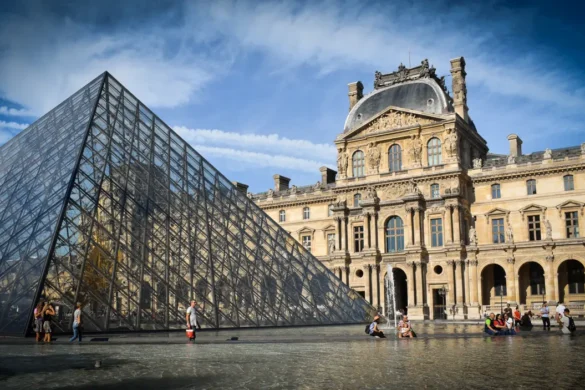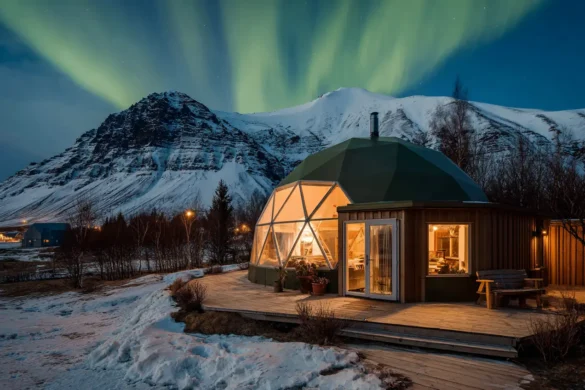Bolivia totally blew my mind. After spending weeks exploring this wild South American country, I still can’t get over its otherworldly landscapes – from the endless white expanse of the Salar de Uyuni to the snow-capped peaks of the Andes rising above rainbow-colored lakes. The diversity here is incredible!
From the steamy Amazon jungle to the surreal salt flats and cities bursting with culture, these are the most beautiful places to visit in Bolivia that left me in awe. Having traveled across this fascinating country, I’m excited to share my 12 favorite spots that showcase why Bolivia deserves way more attention than it gets. Trust me, what you’re about to see will make you want to book a flight immediately!
👉 Find Your Perfect Bolivia Accommodation
👉 My Favorite Tour in Bolivia
#1 tip to save money on your trip to Bolivia
Let’s first cover some quick tips that will save you time and money on your Bolivian adventure.
- FLYING: If you haven’t already, I HIGHLY recommend signing up for Scott’s Cheap Flights (now called Going). Last winter, I flew to La Paz for just $450 roundtrip thanks to their email alerts. The premium and elite version are even better!
- Food: Save by buying meals or ingredients from local markets like Mercado Rodriguez in La Paz or Mercado Central in Sucre. You’ll find fresh produce, local dishes, and prepared meals for under $3 – a fraction of restaurant prices!
- Transport: Get the Bolivia Hop bus pass, which connects major tourist destinations like La Paz, Copacabana, and Sucre. Local shared taxis called ‘trufis’ between cities are another budget-friendly option. For longer distances, night buses can save you both time and accommodation costs.
Bolivia may have a reputation for being one of South America’s most affordable destinations. But these strategies will help you stretch your budget even further. Now, without further ado, let’s jump into the best places to visit in Bolivia:

The Prettiest Destinations in Bolivia
Looking for the most incredible spots in Bolivia? From rainbow mountains to ancient cities, here are the places that left me speechless.
1. Huayna Potosi
- 📍 Location: Cordillera Real, near La Paz
- 🏆 Best For: Mountain climbers 🧗, glacier lovers ❄️, thrill seekers 🚩
- 📸 Top Experiences: Summit climb at sunrise, trekking across icy ridges, panoramic views of the Andes
- 📅 Best Time to Visit: May to September for clear skies and safe climbing conditions 🌄
- 🏨 Where to Stay: Atix Hotel – Trendy bolthole in La Paz’s southern zone
Huayna Potosi offers one of the most accessible 6,000-meter climbs in the world, but don’t let that fool you. This is still a serious mountain that rewards preparation with some of the most dramatic scenery in Bolivia. Its snow-covered peak dominates the skyline just outside La Paz, drawing climbers from around the world.
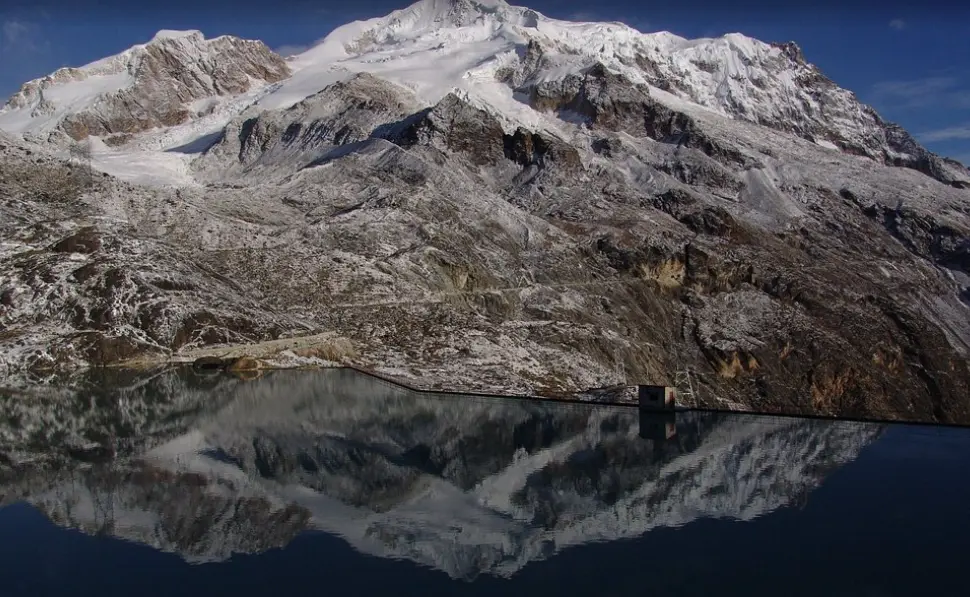
Most treks start with glacier training before making the two-day ascent. Along the way, the landscape shifts from rocky trails to deep snowfields, with views that stretch over the Cordillera Real and beyond. Reaching the summit at sunrise feels unreal, with golden light spilling over the clouds and distant peaks.
Even for those not aiming for the summit, the lower sections offer trekking routes and ice practice areas. Huayna Potosi is a bold way to experience Bolivia’s high-altitude beauty and challenge your limits in one unforgettable climb.

2. La Muela del Diablo
- 📍 Location: South of La Paz, Bolivia
- 🏆 Best For: Hikers 🥾, geology fans 🪨, urban escape artists 🌄
- 📸 Top Experiences: Hiking to the summit, photographing the jagged rock spire, taking in views of La Paz from above
- 📅 Best Time to Visit: May to October for dry trails and crisp views 🍂
- 🏨 Where to Stay: Casa Grande Hotel – Stylish and comfortable base in La Paz’s Zona Sur with mountain access nearby
La Muela del Diablo, or “The Devil’s Molar,” rises dramatically above La Paz’s southern skyline. This volcanic rock formation earned its name from its tooth-like shape, and it draws locals and travelers looking for a solid half-day hike and panoramic views. The trail is moderately challenging, winding through eucalyptus forests and open ridges with La Paz unfolding below.
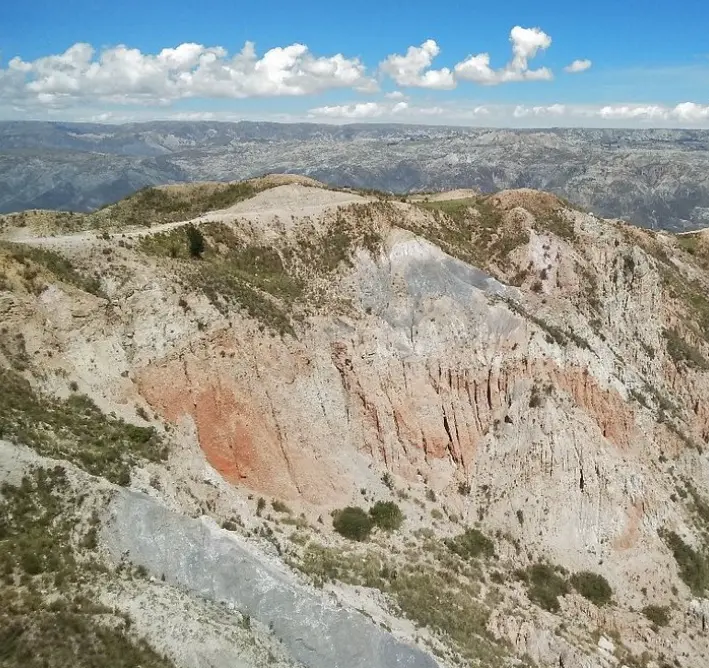
The summit delivers a 360-degree perspective of the surrounding valleys, mountains, and neighborhoods. It’s especially striking in the early morning or late afternoon when shadows stretch and the city glows in soft light. Photographers, climbers, and nature lovers will all find something rewarding here.
Local myths have given the site a spiritual edge over the years. Stories of ancient rituals and hidden energy only add to the intrigue. It’s one of those hikes that combines natural beauty, cultural significance, and a bit of mystery in a quick, doable outing.

3. La Paz
- 📍 Location: Western Bolivia, Andes Mountains
- 🏆 Best For: City explorers 🏙️, culture lovers 🎭, altitude adventurers 🧭
- 📸 Top Experiences: Riding Mi Teleférico, visiting the Witches’ Market, walking the streets of Sopocachi
- 📅 Best Time to Visit: May to August for sunny days and fewer rain showers ☀️
- 🏨 Where to Stay: MET Hotel – Trendy boutique stay with views over the city and mountains
La Paz is not your average capital city. Built inside a massive canyon and perched at over 11,000 feet above sea level, it offers a setting that feels both surreal and alive. The skyline shifts with altitude, from historic markets downtown to upscale neighborhoods high above the valley floor.
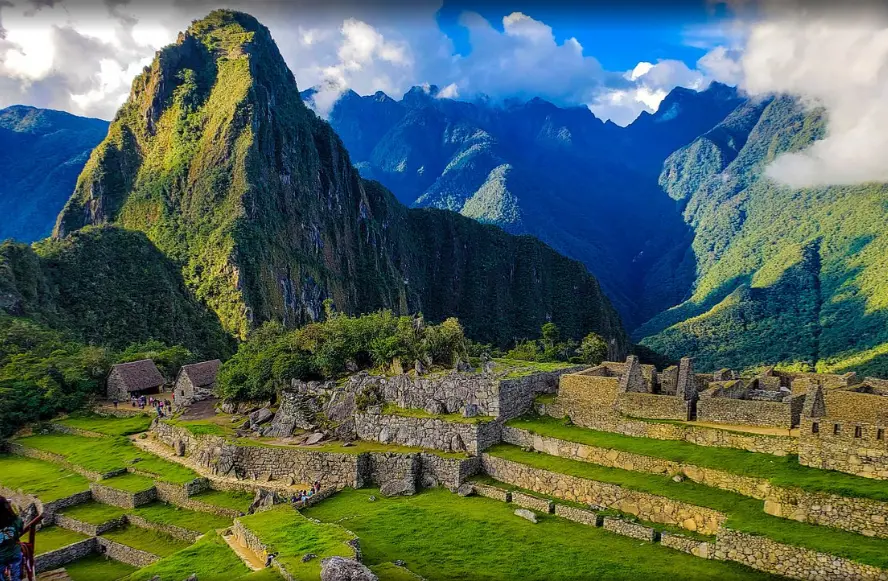
Getting around is part of the experience. The Mi Teleférico cable car system is the highest in the world and connects neighborhoods with sweeping views of the Andes. Each ride gives you a new perspective on this complex and colorful city.
Markets like Mercado de las Brujas showcase Bolivia’s deep spiritual traditions, with stalls full of herbs, amulets, and folk remedies. Foodies will find everything from street salteñas to high-end Andean fusion restaurants. La Paz is equal parts energy and altitude, mixing urban grit with a deep cultural heartbeat.
✈️ My #1 Hack for Cheap 2026 Flights:
It’s January, so flight prices are climbing fast—but you don't have to pay them. I’m currently seeing roundtrips to Europe for under $300 (deals you won’t find on Google Flights).
Step 1: Join Going.com's Free Plan here. It takes 10 seconds and requires no credit card.
Step 2: If you're doing a big trip this year, grab the 14-day free trial of Premium. You can even use my code JON25 for 25% off.
Seriously, this is the single best money-saving tool I’ve used in 8+ years.
👉 Send me cheap 2026 flights
4. Lake Titicaca
- 📍 Location: Border of Bolivia and Peru
- 🏆 Best For: Culture seekers 🛶, nature lovers 🌅, peaceful escapes 🧘
- 📸 Top Experiences: Visiting Isla del Sol, exploring floating reed islands, watching sunset from Copacabana
- 📅 Best Time to Visit: May to September for clear skies and calm lake conditions 🌞
- 🏨 Where to Stay: Hotel Rosario del Lago – Lakeside retreat in Copacabana with stunning views and local charm
Lake Titicaca is a place where time slows down and landscapes feel almost sacred. Sitting at over 12,000 feet, it’s the highest navigable lake in the world and one of the most culturally rich places in Bolivia. The air is crisp, the water reflects the sky like glass, and the entire setting feels deeply rooted in legend.
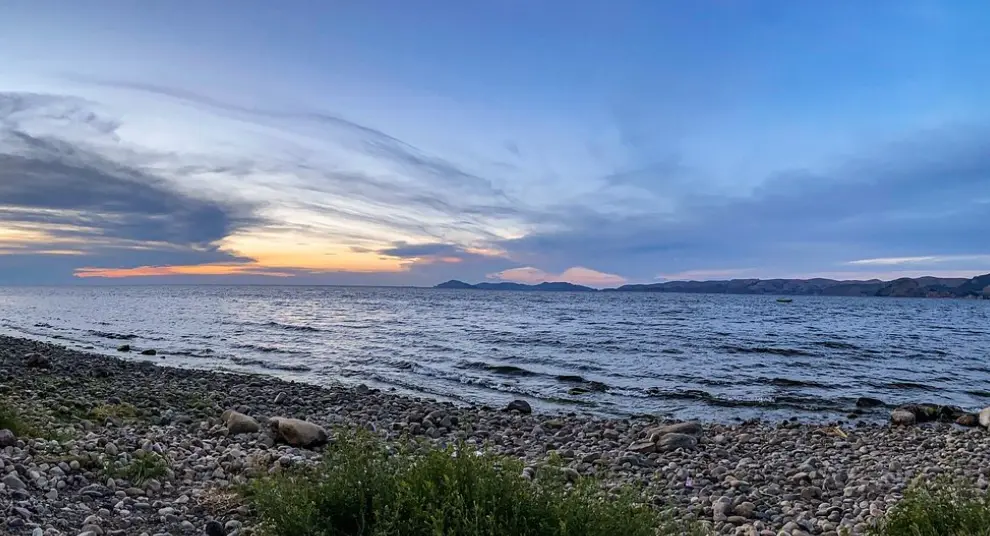
Travelers can take a boat to Isla del Sol, a peaceful island believed by the Incas to be the birthplace of the sun. Stone trails lead to ancient ruins, and small communities offer homestays and handmade crafts. The lake also hosts floating islands constructed entirely from reeds, home to the Uros people who maintain unique ways of life.
Copacabana, the main gateway to the lake, blends spiritual traditions with laid-back lakeside vibes. It’s a perfect base to explore, recharge, and connect with Bolivia’s deep Andean identity.

5. Madidi National Park
- 📍 Location: Northern Bolivia, Amazon Basin
- 🏆 Best For: Wildlife enthusiasts 🐒, jungle trekkers 🌳, biodiversity lovers 🐦
- 📸 Top Experiences: Spotting monkeys and macaws, boating through rainforest rivers, visiting indigenous eco-lodges
- 📅 Best Time to Visit: May to October for dry trails and clearer wildlife sightings 🐾
- 🏨 Where to Stay: Mashaquipe Ecolodge – Authentic community-run lodge nestled in the heart of Madidi National Park
Madidi National Park is one of the most biodiverse places on Earth. Tucked into the upper Amazon basin, it’s home to thousands of plant and animal species, many found nowhere else. Dense rainforest, rushing rivers, and misty mountains come together to create a wilderness that feels both wild and untouched.
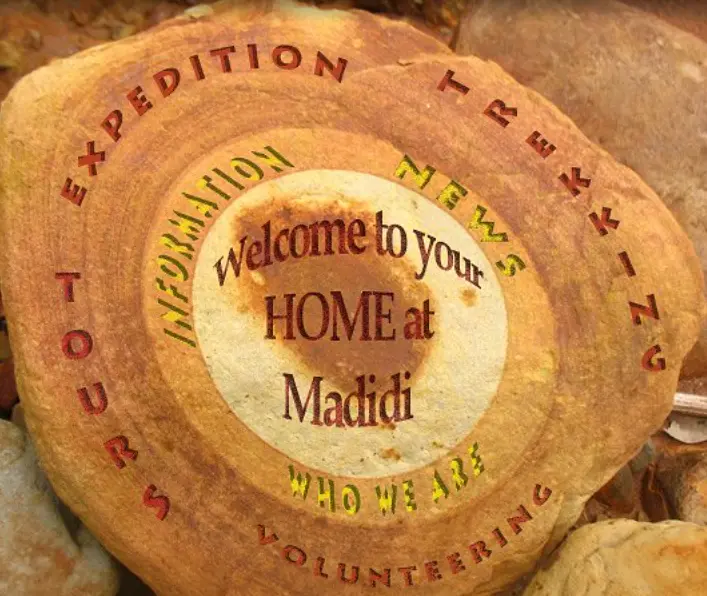
Access begins in the town of Rurrenabaque, where guided tours lead into the heart of the park. Trails weave through jungle canopies alive with bird calls and rustling branches. Jaguars, capybaras, monkeys, and colorful birds are all part of the adventure. Every step here offers a chance to witness something rare and extraordinary.
Visitors often stay in eco-lodges operated by local indigenous communities. These experiences are immersive and deeply respectful of the land. For those seeking connection with nature on its own terms, Madidi offers an experience that’s powerful and humbling.
- Read next: Things to Do in the Amazon Rainforest

6. Salar de Uyuni
- 📍 Location: Southwestern Bolivia
- 🏆 Best For: Photographers 📸, landscape lovers 🌫️, surreal explorers 🪞
- 📸 Top Experiences: Taking reflection photos during wet season, visiting Isla Incahuasi, exploring the train cemetery
- 📅 Best Time to Visit: December to April for mirror effect, May to October for dry salt patterns 🌦️
- 🏨 Where to Stay: Hotel Palacio de Sal – Unique salt-built hotel near the edge of the flats with panoramic views
Salar de Uyuni is Bolivia’s most iconic landscape, stretching across 4,000 square miles of pure white salt. It feels like another planet, especially after rain when the flats turn into a mirror that reflects the sky. This natural illusion blurs the line between land and clouds, creating a dreamlike setting for photos and stargazing.
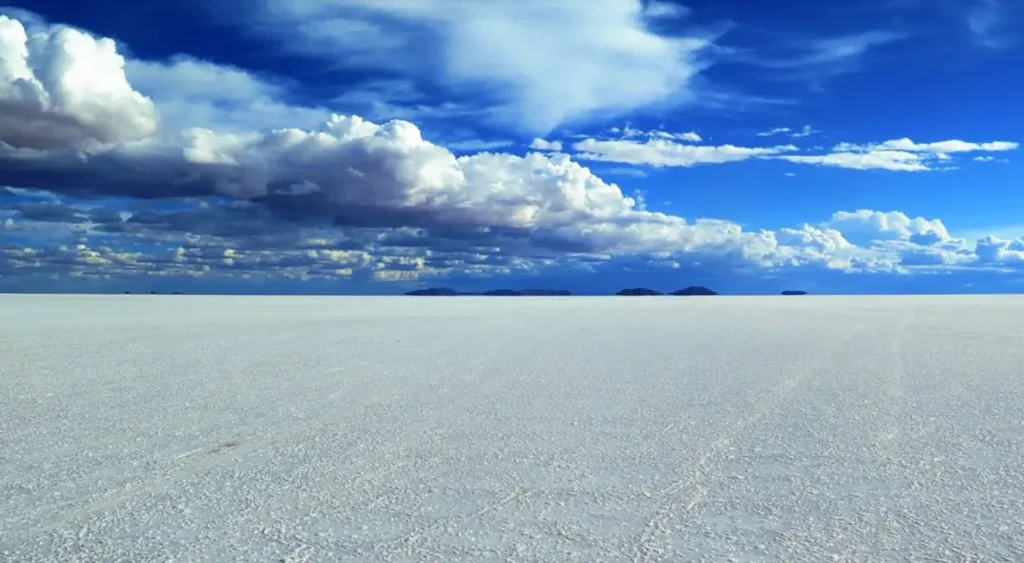
During the dry season, the salt crust forms geometric patterns that crack underfoot and extend endlessly in every direction. Guided tours often include stops at cactus-covered Isla Incahuasi and the eerie train cemetery near the town of Uyuni. These detours give the journey both character and contrast.
Despite its remote location, the salt flats are surprisingly accessible. Travelers can join day trips or multi-day tours in 4x4s. Salar de Uyuni is one of those places that leaves you speechless, offering scenery so surreal it’s hard to believe it’s real.

7. Sucre
- 📍 Location: South-Central Bolivia
- 🏆 Best For: History lovers 🏛️, architecture fans 🏘️, slow travelers ☕
- 📸 Top Experiences: Visiting Casa de la Libertad, exploring local markets, admiring colonial buildings
- 📅 Best Time to Visit: April to October for sunny days and cool evenings 🌤️
- 🏨 Where to Stay: Hotel Villa Antigua – Elegant colonial-style hotel with garden courtyard near Sucre’s historic center
Sucre is often called the White City for its gleaming colonial buildings and calm atmosphere. It’s Bolivia’s constitutional capital and feels more like a living museum than a bustling city. The streets are lined with bright white facades, red tile roofs, and hidden courtyards that make walking around feel timeless.
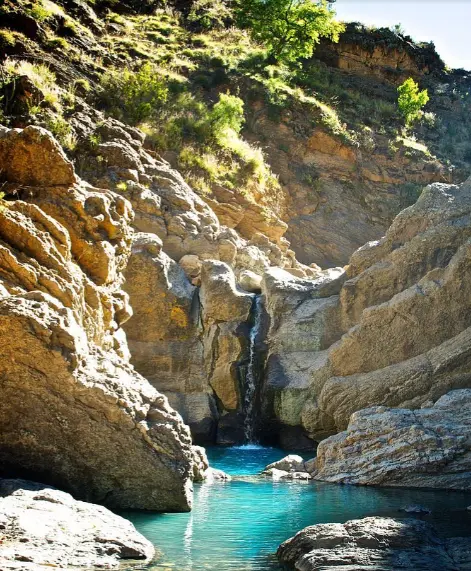
At the heart of the city lies Casa de la Libertad, where Bolivia’s declaration of independence was signed. Museums, cathedrals, and shaded plazas keep history close without overwhelming the experience. Beyond that, Sucre also has a young energy, thanks to its large student population and growing café scene.
This is a place to take your time. Shop for handmade goods in the central market, sip fresh fruit juice in the square, and watch daily life unfold around you. Sucre’s beauty comes from its balance of the old and the everyday.

8. The Cordillera Real
- 📍 Location: Andes Mountains, Central Bolivia
- 🏆 Best For: Trekkers 🥾, mountaineers 🏔️, nature photographers 📷
- 📸 Top Experiences: Hiking near Illimani, camping beside glacial lakes, spotting condors soaring above peaks
- 📅 Best Time to Visit: May to September for clear skies and good trekking conditions 🌞
- 🏨 Where to Stay: Suites Camino Real – Stylish hotel in Calacoto, offering spacious rooms, free Wi‑Fi, and breakfast
The Cordillera Real is a dramatic mountain range that cuts across Bolivia’s highlands, offering jagged peaks, icy ridges, and stunning alpine valleys. It’s home to some of the country’s most iconic summits, including Illimani and Huayna Potosi, and serves as a paradise for those seeking high-altitude adventure.
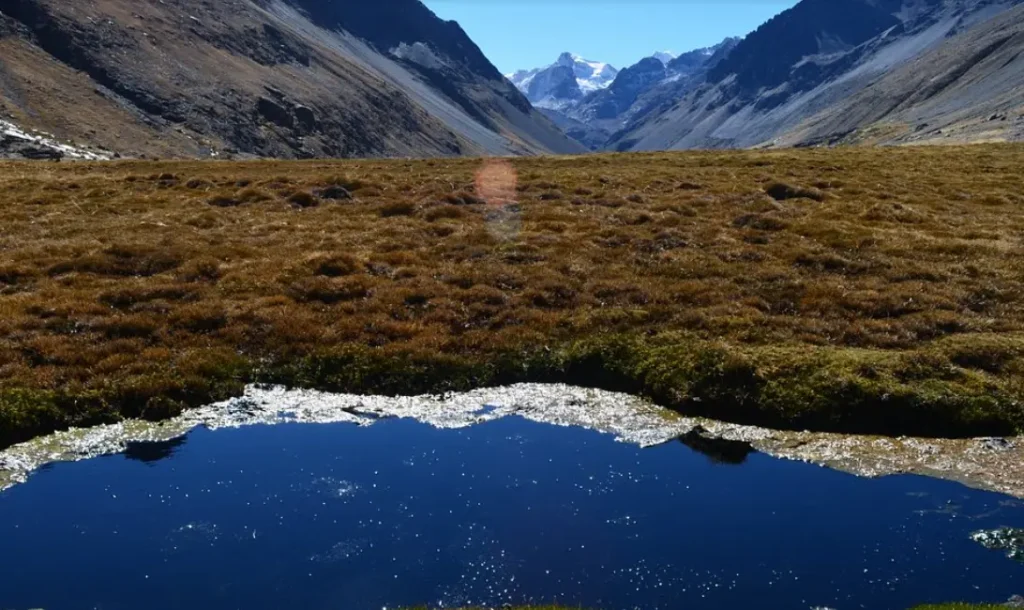
Multi-day treks through the range lead to turquoise glacial lakes, remote Andean communities, and views that stretch for miles. Trails vary from gentle walks to technical climbs, making the region accessible to experienced hikers and professional mountaineers alike. Campsites often sit beside rivers or below snowcapped spires.
Cultural encounters also add depth to the journey. Many paths cross through Aymara villages where herders tend llamas and traditions remain strong. The Cordillera Real isn’t just a scenic backdrop. It’s a living, breathing slice of Bolivia where landscape and culture meet at the roof of South America.

9. The Milluni Graveyard
- 📍 Location: Near La Paz, Cordillera Real
- 🏆 Best For: History buffs ⚒️, offbeat explorers 🧭, reflective travelers 🪦
- 📸 Top Experiences: Observing miners’ graves, photographing helmet-adorned tombs, viewing mountain backdrops
- 📅 Best Time to Visit: June to August for dry weather and clear visibility 🌤️
- 🏨 Where to Stay: Casa Fusion Hotel Boutique – Comfortable La Paz hotel near transport routes to Milluni
The Milluni Graveyard sits quietly beneath the peaks of the Cordillera Real, offering a haunting yet powerful look into Bolivia’s mining history. Rows of tombs are marked by helmets and tools, telling silent stories of the miners who worked and died in nearby tin mines over the past century.
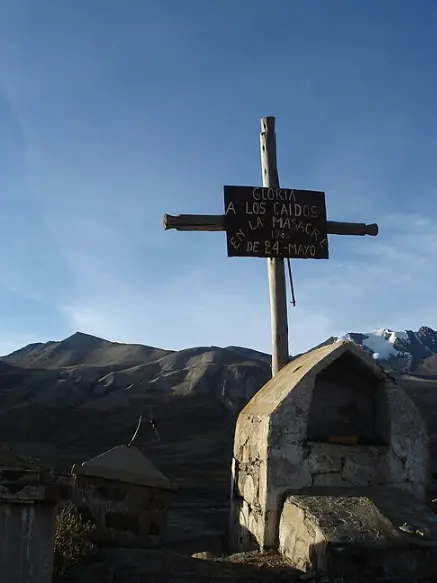
Reaching the site involves a short drive or hike from La Paz, ascending into the barren highlands where the air gets thinner and the views become wider. The graveyard rests between rugged hills and an icy lake, making the setting feel isolated and reflective. It’s a raw contrast to Bolivia’s lively cities.
This place isn’t about tourism in the traditional sense. It’s about remembering sacrifice, labor, and community. Few visitors leave without feeling the emotional weight of what the site represents. The Milluni Graveyard is one of Bolivia’s most unexpected and moving destinations.

10. The Southwest Circuit
- 📍 Location: Southwestern Bolivia, near Uyuni
- 🏆 Best For: Road trippers 🚙, landscape photographers 📸, geology lovers 🌋
- 📸 Top Experiences: Visiting Laguna Colorada, watching geysers erupt in Sol de Mañana, crossing Salvador Dalí Desert
- 📅 Best Time to Visit: May to October for dry roads and wide-open views 🌤️
- 🏨 Where to Stay: Hotel Jardines de Uyuni – Comfortable hotel in Uyuni town, ideal starting point for multi-day tours
The Southwest Circuit is a journey through Bolivia’s most surreal terrain. This multi-day route links volcanic deserts, flamingo-filled lakes, and boiling geysers in an otherworldly sequence of stops. Most travelers explore the circuit via guided 4×4 tours that begin in Uyuni and venture deep into the Eduardo Avaroa National Park.
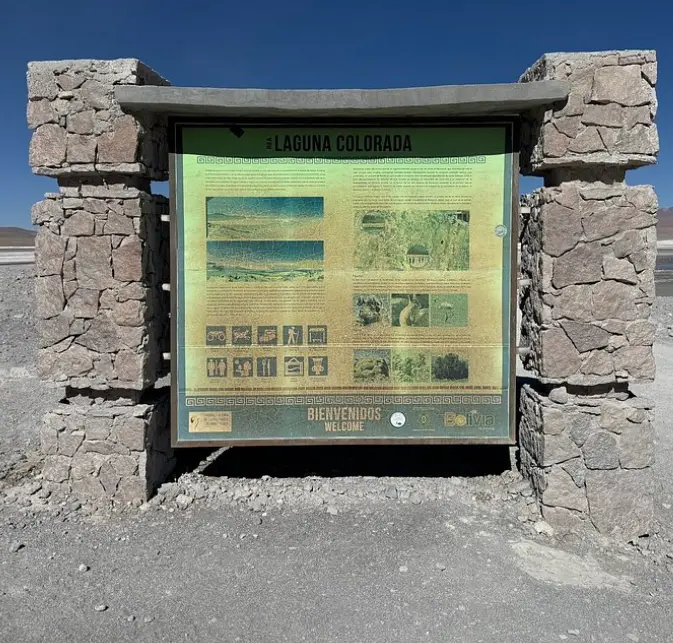
Highlights include the rust-red waters of Laguna Colorada, steaming geothermal fields, and lagoons so vividly colored they feel painted. Along the way, travelers pass wind-sculpted rock formations, vast lava plains, and the iconic Árbol de Piedra. Every turn reveals a new kind of beauty.
Accommodations are basic but welcoming, often set in remote lodges near the attractions. Despite its ruggedness, the circuit offers an unmatched visual feast. For those looking to experience Bolivia’s raw and diverse natural wonders, this route delivers one of South America’s most unforgettable road adventures.

11. Toro Toro National Park
- 📍 Location: Potosí Department, Central Bolivia
- 🏆 Best For: Paleontology fans 🦕, adventure travelers 🧗, nature explorers 🌄
- 📸 Top Experiences: Seeing dinosaur footprints, hiking the Vergel Canyon, spelunking in Umajalanta Cave
- 📅 Best Time to Visit: May to August for dry trails and sunny skies ☀️
- 🏨 Where to Stay: Hostal Margaritas – Central guesthouse in Toro Toro village
Toro Toro National Park is Bolivia’s prehistoric playground. The region is known for its extensive dinosaur tracks, many perfectly preserved in stone. Guided walks take you directly alongside these ancient footprints, some measuring over a foot in length and set in dramatic desert rock.
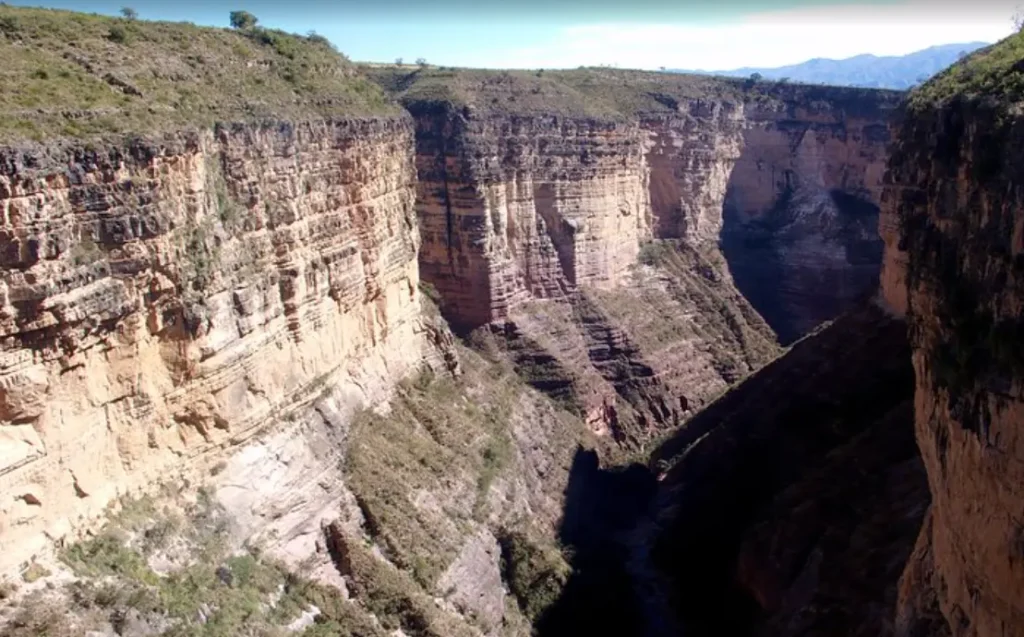
Adventure doesn’t stop there. The park features rugged canyons, deep gorges, and sprawling cave systems. Umajalanta Cave is especially popular, with guided tours that involve climbing, crawling, and marveling at stalactites and underground pools. It’s an active and immersive experience that suits those who love physical exploration.
Despite its remote location, the park is reachable via scenic drive from Cochabamba. Local guides and small lodges provide a welcoming, grounded feel. Between the dramatic geology and strong sense of history, Toro Toro is one of Bolivia’s most unique and memorable national parks.

12. Valle de las Animas
- 📍 Location: Near La Paz, Bolivia
- 🏆 Best For: Hikers 🥾, geology fans 🪨, spiritual seekers 🧘♂️
- 📸 Top Experiences: Hiking through the rock spires, sunset views over the valley, taking photos of the eerie formations
- 📅 Best Time to Visit: May to October for dry weather and warm light 🌅
- 🏨 Where to Stay: Hotel Mitru Sur – Modern and peaceful stay in La Paz’s southern zone with access to the valley
Valle de las Animas, or Valley of the Souls, feels like a natural cathedral sculpted by wind and time. Just outside La Paz, this geological wonder features towering rock formations that resemble stone spires or fingers reaching toward the sky. The landscape is quiet, vast, and filled with atmosphere.
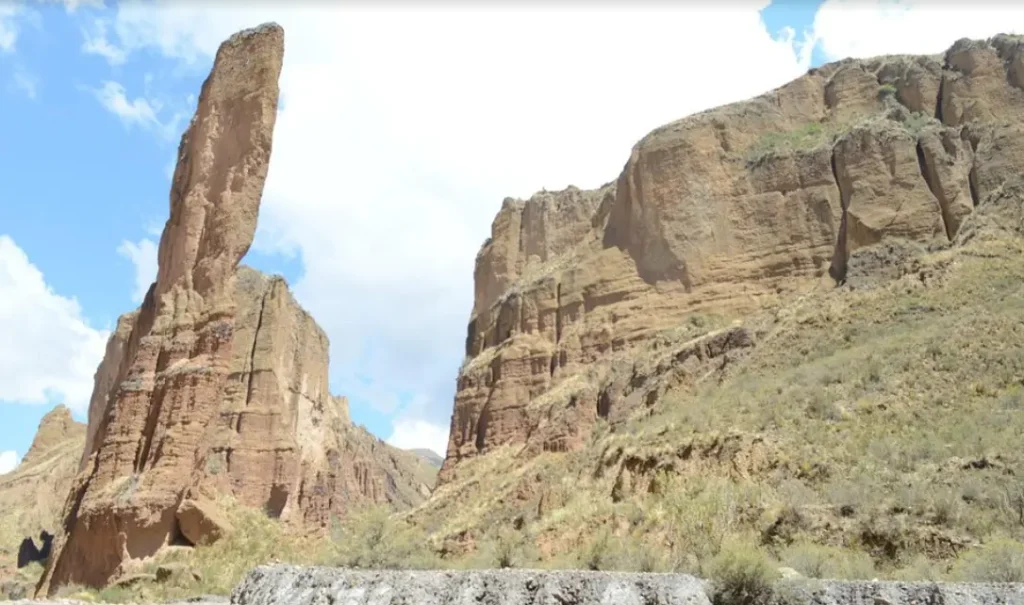
Many visitors come to hike, with trails that lead through narrow passes and open ridgelines. The valley is especially dramatic in the late afternoon, when low sunlight casts long shadows and the terrain glows gold and orange. It’s a striking contrast to the busy streets of La Paz just a short drive away.
Local folklore adds another layer. Stories describe the valley as a place where souls rest or wander, lending the site a spiritual, almost mystical tone. It’s a destination that pairs well with introspection and offers a visually unforgettable escape.



Global Viewpoint is a personal blog. All content is for informational and entertainment purposes only and does not constitute professional financial, medical, or legal advice.




